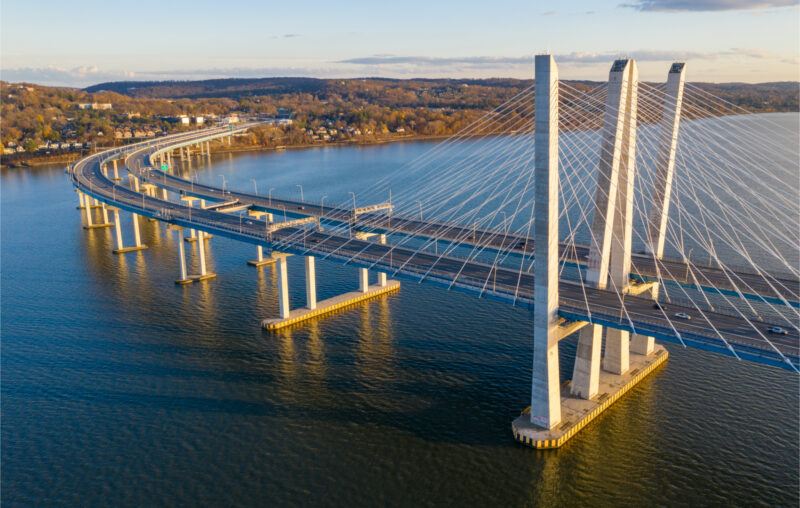Rename the Cuomo Bridge for Covid Victims

The walls are closing in on New York Governor Andrew Cuomo, with a handful of harassment allegations piling upon the investigations as to whether there was a donor connection – a money trail – associated with the decision to send many nursing home residents infected with Covid from hospitals back to their long-term care facilities. The fact that the death tolls were underreported, originally said to be 8,711 but now upward of 13,297 was the proverbial ball that got all of this rolling. (It was recently revealed that the cover-up hid close to 2,000 Covid deaths in New York City alone.)
Of course, Andrew Cuomo is a politician and politicians as a class have a unique, indeed astounding, facility for escaping the consequences of actions which for any of the rest of us would be prosecuted, fined, or imprisoned. Politicians, in fact, have a lot of options that the rest of us don’t have despite their nominal status as public servants.
In June of 2018, virtually overnight, the Tappan Zee Bridge which spans the Hudson River from Nyack, NY to Tarrytown, NY was renamed the Governor Mario M. Cuomo Bridge. Mario Cuomo was, of course, New York Governor Andrew Cuomo’s father. The suddenness of the name change surprised and angered many New York residents, who found the maneuver galling even for politics, and moreover even for New York State politics. That’s saying something.
With a little digging it was found that Governor Andrew Cuomo, a Democrat, had arranged to give $10M in taxpayer funds to expand a Republican-backed museum in Orange County. That evidently purchased the support necessary for a brisk rechristening of the span.
Would a stronger public reaction to the redubbing of the Tappan Zee have chastened the current Cuomo Administration? Would a rebuke to smoky backroom deals have led to a different handling of Covid in New York State? Do the Republicans who yielded bear some responsibility for empowering the current, but who knows for how long, New York State Governor?
This is errant speculation. And I hasten to add that none of this has anything to do with the current New York Governor’s father after whom the Tappan Zee was retitled. Mario Cuomo, who died in 2015, was another Albany power dealer, albeit one with a decidedly smaller footprint than his son. (As one editorial said: “I admired Mario Cuomo … [but] few New Yorkers would be able to name any significant accomplishment of [his] governorship.”) However, a small but powerful message might be sent – not only to drivers and passengers of some of the over 140,000 vehicles that cross the bridge each day, but to politicians nationwide, now and in the future – about the long shadow cast by corrupt and despotic dealings.
Across the United States, schools, parks, and sports teams are being renamed in accordance with a social justice movement. There are arguments that statues and infrastructural appellations bear unseemly testament to horrific historical practices and figures, and those claims are met by the contention that those monuments do not commemorate, but rather inform the present of progress made in the interim. It is, to be frank, a complicated issue. The connection between an under-the-table, last minute deal to arrogate the naming of a bridge and tucking a provision providing nursing home and long-term care operators with immunity from Covid lawsuits into an omnibus bill is even clearer.
I empathize with those desiring that the name of the 3.1 mile bridge should revert to Tappan Zee; other recommendations would undoubtedly include renaming the structure for a deceased serviceman or woman, the 9/11 attack victims, or a different New York State Governor. (DeWitt Clinton, who facilitated the building of the Erie Canal, often comes up.) But I disagree with all of those.
Instead I propose, in the same way that the Tappan Zee was, through political connections and backroom deals, an immediate renaming of the Governor Mario M. Cuomo Bridge. Let the bridge bear testament to the death toll incurred, to no small extent, by not resisting corruption: by not standing up and calling attention to abuses of power and “late night, closed-door dealmaking.” And most importantly, not recognizing that giving government officials a single inch of leeway and even a moment’s lack of oversight can pay dire, indeed lethal, dividends in the long run.
And the most appropriate proposal, at this time, would be the “New York State Nursing Home Covid Victims Memorial Bridge.”










